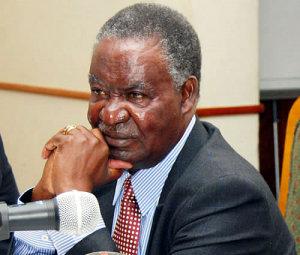President Edgar Lungu says Late
President Michael Sata will forever be remembered as an architect of
development.
Mr. Lungu said during Mr. Sata’s
three year tenure as republican president, the country recorded unprecedented
massive development particularly in rural areas.
President Lungu said the creation of
new districts, construction of roads among other infrastructures embarked on by
the late Mr. Sata has greatly contributed to improved service delivery.
The Head of State said the best way
to honour the late Mr. Sata is by following his legacy of ensuring that the
livelihoods of the vulnerable people in the country is uplifted.
 |
| Late President Michael Sata |
Mr. Lungu said this at the memorial
service in honour of the late president Michael Sata at Saint Ignatius Parish
in Lusaka.
And Mr. Lungu said Mr. Sata was an
inspirational leader who embraced values that were common to every ordinary
citizen of this country.
Mr. Lungu said he will forever remain
indebted to the late Mr. Sata for inspiring him with his ability of
providing political character that enabled every citizen of this country to
actively participate in national affairs.
And speaking on behalf of the Sata
family, former vice president Dr. Guy Scott said the late Mr. Sata brought a
new dimension to the country’s political arena.
Dr. Scott said Mr. Sata was a
selfless politician who spoke courageously for the majority poor in the
country.
The former Vice President further
said Mr Sata’s capability and courageousness saw him rise to serving in
different government portfolios until his death as Head of State.
And in his homily, Fr. Charles
Chilinda called on all Zambians to emulate Mr. Sata’s life of loving one
another.
Fr. Chilinda urged politicians to put
aside all personal differences and aim at tackling national issues that will
improve the country’s economy for the betterment of all Zambians.
He said the needs of the people of
Zambia are enormous hence the need to priorities national issues that will
benefit the poor in society.
Fr. Chilinda also described the late
Mr. Sata as a loving family man whose delicate sense of charity influenced many
people in the country.
Fourth republican President Rupiah
Banda, former first lady Maureen Mwanawasa, Speaker of the National Assembly
Dr. Patrick Matibini were also present during the memorial church service.
United Party for National Development
(UPND) leader Hakainde Hichilema, Fourth Revolution Party president Erick
Chanda, Zambia Direct Democracy Movement (ZDDM) president Edwin Sakala and All
Peoples Party President Mike Mulongoti were among opposition political leaders
present at the memorial church service.





